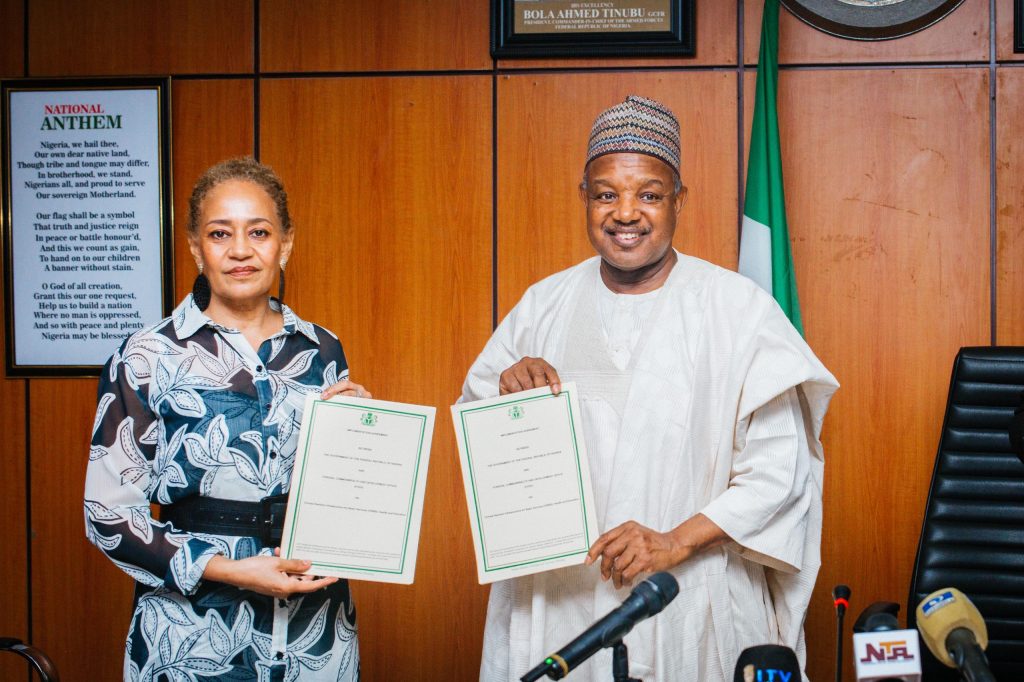Nigeria and the United Kingdom have further cemented their bilateral relationship by signing a series of key agreements aimed at boosting governance, climate change resilience, education, health, and economic development. The deals, amounting to N589 billion (£272.6 million), were signed in Abuja by Nigeria’s Minister of Budget and Economic Planning, Senator Abubakar Bagudu, and the UK’s Charge d’Affaires, Ms. Cynthia Rowe.
Senator Bagudu, welcoming the UK delegation, noted the importance of these agreements in tackling shared global challenges. He emphasized that both nations face difficulties due to the global economic climate and highlighted the critical areas of cooperation, particularly in health and climate change.
The minister also addressed Nigeria’s recent economic reforms under President Bola Tinubu’s administration, acknowledging the temporary hardships they have brought but asserting their necessity for long-term economic stability and investment growth.

Bagudu expressed confidence that Nigeria, with the support of international partners like the UK, would overcome its challenges and meet its development goals. He thanked Ms. Rowe for her cooperation in finalizing the agreements, which are part of a broader push to secure resources for Nigeria’s growth.
Ms. Cynthia Rowe reiterated the UK’s commitment to Nigeria’s development, emphasizing the longstanding partnership between the two countries. She praised Nigeria’s Ministry of Budget and Economic Planning for its collaboration, especially in the wake of recent natural disasters like flooding.
Among the signed agreements is the Human Assistance and Resilience Program (HARP), a £150 million initiative aimed at providing life-saving humanitarian aid to Nigeria’s conflict-affected Northeast. Other key agreements include the Nigeria Governance and Climate Change Programme (NGCP) and the Strengthening Peace and Resilience in Nigeria (SPRING). These programmes are designed to promote sustainable development, improve governance, and address climate-related issues.
These initiatives are part of the UK’s broader support for Nigeria through the Foreign and Commonwealth Development Office (FCDO), which continues to fund a wide range of programs aimed at economic transformation, conflict resolution, and human development.
The agreements are expected to drive inclusive growth, strengthen governance, and improve the lives of Nigeria’s most vulnerable populations, further solidifying the strong diplomatic and economic ties between Nigeria and the UK.


